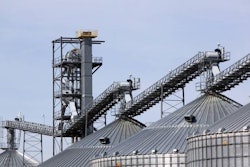
A new study reveals that one ingredient in processed meat products may be linked to an increased cancer risk. The risk is not the same for all products.
Not all processed meats carry the same level of cancer risk. That is the main conclusion of newly published research from Queen’s University in Belfast, Northern Ireland.
After reviewing all recent English-language studies investigating the links between intake of processed meats and the risk of cancer, the results were inconclusive. Authors of the paper were Brian Green, William Crowe and Chris Elliott. They found about one in two of all the studies they reviewed showed a link between consumption of these products and colorectal cancer (CRC).
This, they said, would explain the contradictory results on the link between consumption of processed meats and health.
Focus on effects of sodium nitrite
The researchers — from the Institute of Global Food Security at the University — then focused on those studies that looked at processed meats containing sodium nitrite. Evidence of a link with CRC jumped to 65%.
“When we looked at nitrite-containing processed meat in isolation – which is the first time this has been done in a comprehensive study – the results were much clearer,” said Crowe. “Almost two-thirds of studies found a link with cancer.”
From their results, the researchers recommend that the health risks associated with processed meats are defined separately for products containing sodium nitrite, and those without.
“Because there have been conflicting claims in the scientific community and the media about which types of meat may be carcinogenic, this study couldn’t have come at a better time,” said Elliott. “It brings much-needed rigor and clarity, and points the way for further research in this area.”
“There is more research to be done before we can definitively prove causality regarding processed meat and cancer. There are so many variables when it comes to people’s diets,” said Green. “Based on our study – which we believe provides the most thorough review of the evidence on nitrites to date – we can confidently say is that a strong link exists between nitrite-containing processed meat, such as frankfurters, and CRC.”
Sodium nitrite in meat products
Sodium nitrite is added to some processed meats as a preservative to extend shelf life, and to enhance color of the product, according to Green and co-authors. They explain that nitrite consumption can lead to the formation of N-nitroso compounds, some of which are carcinogenic.
According to the researchers, sodium nitrite is a common ingredient in products such as frankfurters, pepperoni and chorizo. However, it is not used in British and Irish sausages. New nitrite-free ham and bacon are emerging on the market.
Time to review healthy eating recommendations?
In 2015, the World Health Organization (WHO) classified all red and processed meat as carcinogens, believing all such products to carry similar risks to human health.
Previously, an International Agency for Research on Cancer (IARC) study had concluded that processed meat is carcinogenic, and red meats are “probably carcinogenic.” Three years previously, WHO had highlighted a link between red meat consumption, and increased mortality from cardiovascular diseases and cancer.
The World Cancer Research Fund (WCRF) stated in 2007 that the consumption of processed meat is a convincing cause of CRC and, therefore, the public should avoid it entirely.
According to the Belfast paper’s lead author Green, the Department of Health advises the public to eat no more than 70 grams (2.5 ounces) of red or processed meat per day.
If future research confirms this group’s results, this general guidance may need to be reviewed and refined to take account of different processing methods and ingredients.
The latest paper — titled “A review of the in vivo evidence investigating the role of nitrite exposure from processed meat consumption in the development of colorectal cancer” — was published in the journal Nutrients.
In November 2019, U.S. researchers concluded that the consumption of red meat does not adversely impact human health.











